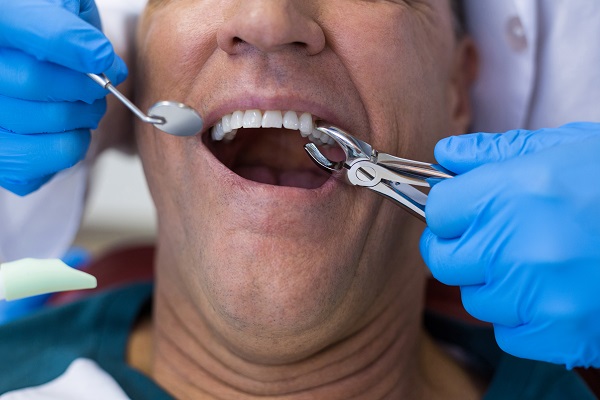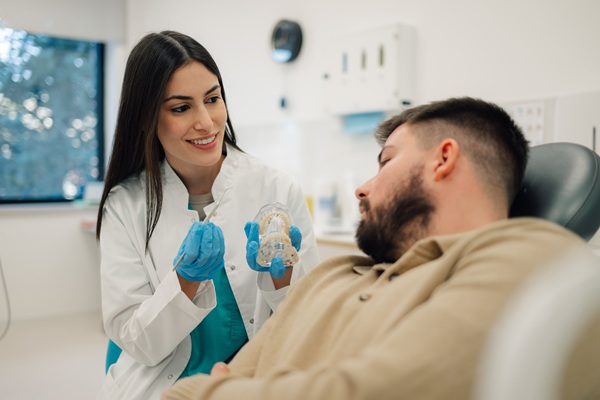Life After Tooth Extraction
There are many reasons that a dentist may require a patient to have a , particularly if the tooth causes problems with the patient’s oral health, function or appearance. After tooth extraction, you should be sure to follow all aftercare instructions provided by the dentist and understand what options are available to replace the missing tooth in the long term (if necessary).
Tooth extraction aftercare and what to expect in the long term
Tooth extraction is a relatively common procedure that many people experience. If a missing tooth will cause a cosmetic concern, then the dentist can recommend ways to replace the missing tooth. There may also be oral care and functional adjustments that the patient must make. The following is a review of what to expect after tooth extraction in the immediate aftermath and in the long term.
When is a tooth extraction necessary?
Tooth extraction may be recommended or necessary for a variety of reasons. In general, any time a tooth causes oral health, functional, cosmetic or alignment concerns, it may be in the patient’s best interest to remove it. A dentist may recommend tooth extraction for the following reasons:
- Severe tooth damage
- Deep dental decay
- Severe periodontitis
- Teeth overcrowding
- Emergency dental treatment
If necessary, the dentist can replace the missing tooth with an artificial prosthesis, such as a dental implant or partial denture.
What happens after tooth extraction?
There is a recovery and aftercare period after tooth extraction. This should involve caring for the mouth properly by eating a soft diet, drinking water regularly and practicing good oral hygiene. There may be swelling and discomfort, and the patient may also need to adjust to life without the tooth until it can be replaced, although not all extracted teeth require replacement. The patient can manage pain through over-the-counter pain relief medication, and they should check for signs of complications regularly and alert the dentist if any concerns develop.
Can I replace the missing tooth?
Depending on the purpose of tooth extraction, the dentist may recommend replacing the tooth. Specifically, a tooth should be replaced if it causes a cosmetic concern. In some instances, a tooth is removed for orthodontic reasons, like if the mouth is overcrowded, so it may be best to not replace the tooth in these situations. If the patient does want to replace the missing tooth, the three main options are a dental implant, dental bridge and partial removable denture.
What to expect in the long term after tooth extraction
The goal of tooth extraction is to improve either the oral health, function or appearance of the patient. It may be one step in a larger treatment process. Long term, the patient should benefit more from tooth extraction than without it, and the patient should adjust relatively quickly after extraction.
Discuss tooth extraction and tooth replacement with our team
If you are concerned with tooth extraction, then feel free to talk to our team about your concerns and ask them questions. We guide our patients through the tooth extraction and tooth replacement processes to ensure optimal safety and effective procedures.
Request an appointment here: https://www.sylvadentist.com or call Sylva Family Dental at (828) 398-1879 for an appointment in our Sylva office.
Check out what others are saying about our dental services on Yelp: .
Recent Posts
Without promptly getting a tooth fillings for a cavity, it can lead to other serious oral health issues, including tooth abscesses and tooth loss. Despite improvements in dental hygiene and oral care, tooth decay continues to be a major issue for children and adults alike. Therefore, it is necessary to visit the dentist regularly so…
If you are in need of a tooth extraction, you may be wondering how long it will take to heal from this procedure. Let's discuss the various reasons for having a tooth extracted, the extraction process itself, and the healing process.There are a variety of reasons why someone would need a tooth extraction. A tooth…
Family dental care serves the primary oral healthcare needs of entire families. A family dentist can treat patients during any stage of life, making a family dentist someone who can provide dental care services for children and adults. Look for a family dentist who is trustworthy, dependable, and truly cares about your family's good oral…
Practicing preventive dentistry is an effective way to establish good oral health. Strict personal oral hygiene practices result in fewer dental problems. Strengthening these practices with regular dental appointments makes preventive dental care even more efficient. Preventive dentistry becomes even more effective by avoiding some bad habits.This habit increases the risk of chipping teeth. It…


